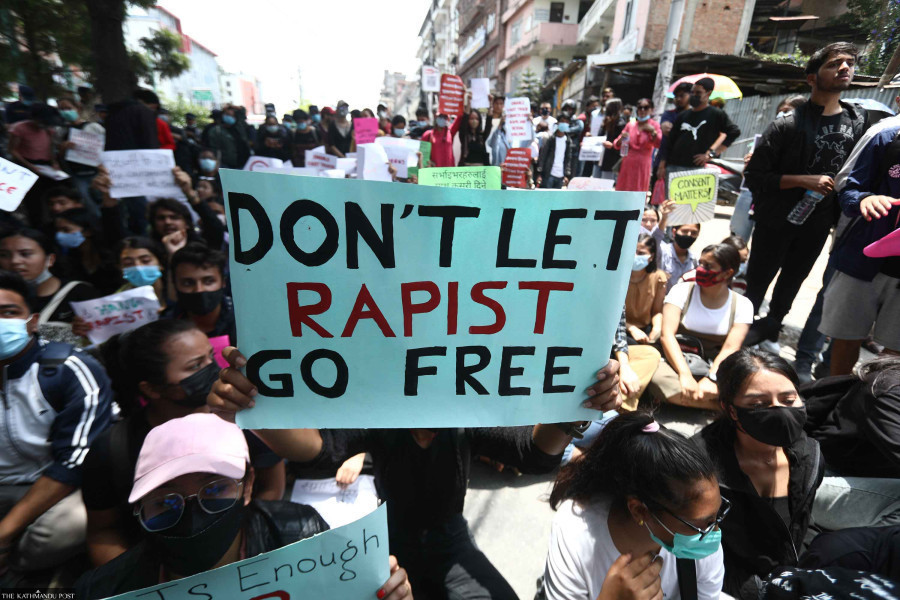Editorial
Apathetic police
Law enforcement must set an example by helping women seeking justice in cases of marital rape.
In April 2019, just three days after a perilous emergency surgery at Tribhuvan University Teaching Hospital in Maharajgunj, Binu Yadav was raped by her then-partner, Pradeep Kathayat, while she was bedridden. When she reached out to police for help, they reportedly dismissed the urgency of the case and filed a First Information Report (FIR) only four days later. She sought help twice, after first being sexually abused by Kathayat, then by his uncle. Both times, she faced apathy from law enforcement. They dismissed the importance of consent, undermined her survivor testimony and protected powerful perpetrators.
Yadav’s is not an isolated case. On August 2, 2022, a 26-year-old woman from Baneshwar in Kathmandu filed an FIR against her husband for subjecting her to a series of sexual violence immediately after their marriage. The victim stated that her husband forced her into sexual acts repeatedly against her will. Ravi Oad, winner of the second season of the reality TV show Nepal Idol, was accused of marital rape in 2022, with a complaint filed against him at the Kanchanpur Area Police Office in Jhalari.
Laws across the globe recognise that marriage does not negate a spouse’s right to bodily autonomy and that consent is a fundamental requirement for any sexual act, regardless of marital status. Women should still have the liberty to choose whether they want to have sex with their spouse even after marriage. And the police should work to ensure that this right of women is safeguarded. The majority of Nepali men still seem incapable of comprehending the concept of consent, let alone realising that marital rape is a crime. According to clause 219 (4) of the National Penal Code, ‘If the husband commits rape on his wife during the existence of the marital relationship between them, he shall be liable to a sentence of imprisonment for a term not exceeding five years’. Survivors say that when they muster up enough courage to report the crime, they are still subjected to judgmental questioning and accusations.
Rape does not always leave behind physical scars, and the lack of such physical evidence works against women when they seek justice. Nor does a survivor always fight back by screaming for help when they are being assaulted. It would be preposterous to interpret this as consent. As experts say, sometimes they can freeze in shock, leaving behind insurmountable mental trauma. In a society where women are subjected to several evil practices, some muster enough courage to seek justice when they have been wronged. When women step forward, the concerned security agency must take their pleas seriously.
The apathy police personnel display by the act of asking an array of dehumanising questions to survivors is condemnable. Since the nature of the crime is sensitive for the survivors, often evoking trauma, security personnel need to be trained, specifically on how to support the survivors. Although Police officials claim that the concerned personnel in the organisation are sufficiently trained, it seems such training is limited to high-ranking officials. As cases of marital rape are not confined to the capital, it is high time police personnel in offices across the country are trained to handle such cases with adequate care.
Police must set an example by helping women seek justice in cases of marital rape. If they do not, the survivors might stop approaching law enforcement. And if the survivors stop trusting the police, our supposedly progressive law, which on paper recognises the importance of consent in marital sex, would be dead in spirit.




 23.27°C Kathmandu
23.27°C Kathmandu














